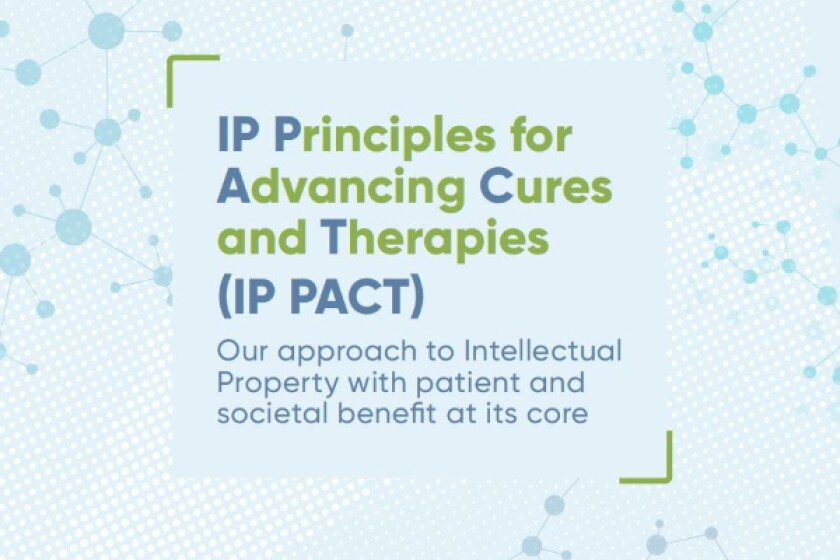In a move that includes the pharma industry’s largest-ever commitment to approach intellectual property differently in poorer countries, 26 companies this week pledged to follow 10 principles that commit them to using IP in ways that deliver value to patients and societies.
The pledge, called IP Principles for Advancing Cures and Therapies (IP PACT), was launched on World IP Day on Monday, April 26, by innovator companies including Novartis, Pfizer and UCB, and supporting trade associations such as IFPMA and EFPIA.
The principles laid out include acting professionally and responsibly in patent proceedings (principle six), recognising the importance of generic and biosimilar medicines systems (principle seven), and approaching IP in poorer countries in ways that recognise socio-economic challenges (principle 10).
Sources stressed that the companies that signed up to this pledge already followed these principles, and that launching IP PACT was the best way to communicate that fact to members of the public.
Related stories
IFPMA interview: medicine access challenges ‘not remotely IP related’
A stranger’s guide to pharma IP collaboration during COVID-19
Pharma fears corruption of ‘hugely successful’ Bayh-Dole Act
Corey Salsberg, global head of IP policy at Novartis in Washington DC and one of IP PACT’s architects, says he and his colleagues and counterparts in other businesses came up with the idea for the pledge several years ago.
He adds that the purpose of IP PACT is to provide some context for the ways pharma companies approach IP, at a time when IP in the life sciences industry is increasingly becoming a topic of consideration among global legislators.
“We wanted to get together as a group of like-minded companies to illustrate the importance of IP in providing value to patients and societies by putting the higher principles we follow every day into one place.
He adds that the principles haven’t been listed in order of importance, but rather sit under an umbrella, which he hopes will make it clear to the lay person that what these pharma firms file and how they use IP is attached to the goal of developing breakthrough innovations that benefit patients.
Salsberg notes that the pledge wasn’t launched in response to the COVID IP waiver at the World Trade Organization, which was proposed by the South African and Indian governments in October 2020 and has recently been picking up steam.
Sharon Reiche, global IP policy and advocacy head at Pfizer in New York, who also developed IP PACT, adds that this part of the pledge was introduced some time before to recognise that developing countries are managing infrastructure issues and may lack the capacity to build up their patent offices.
She says that to put this point into context, Pfizer has a policy of patent non-enforcement in countries listed by the United Nations Committee for Development Policy as least-developed.
There are 46 such countries on the UN’s list, including Afghanistan, Ethiopia and Myanmar.
“We do file patents in those places because we believe giving these countries the opportunity to work with specialised patent attorneys and to build up their patent practices is useful to get them to the next stage of that development,” Reiche says.
“But again, we recognise the socio-economic challenges in those places.”
Reiche adds that she hopes IP PACT will help members of the public understand the importance of IP, which has provided the incentives to allow companies such as Pfizer to quickly mobilise and develop the resources and technical knowledge required to fight pandemics.
“The IP system has facilitated advancements in cutting-edge technologies, such as the mRNA vaccine.”
Pfizer has published a page on its website with more information on IP PACT.
The IP PACT is open to all innovator pharma companies that want to follow the 10 principles it sets out.











